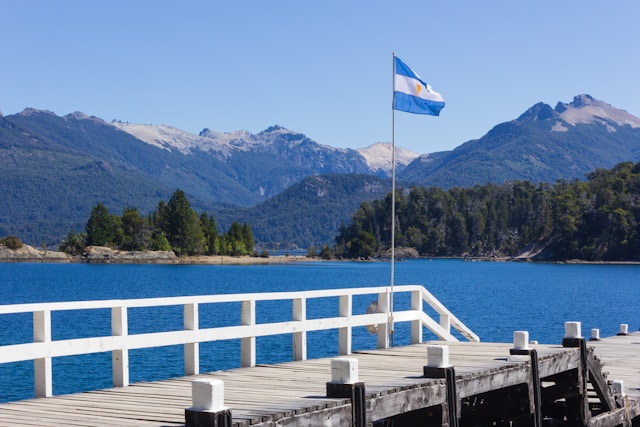Spain, Argentina, Portugal, and soon Japan, offer Digital Nomad Visas for professionals who want to visit and reside in the countries while working remotely.
Remote work has changed the landscape of various industries even after the COVID pandemic has subsided. Now, more professionals and businesses are realizing that certain jobs don’t require onsite work for maximum efficiency. Those who are currently working from home, whether they’re self-employed or not, gain quite a few advantages. They can now take their job anywhere—so nothing is stopping them from working wherever they want to, as long as they have internet access and are able to get the job done. Some countries have even started offering Digital Nomad Visas for these particular professionals, allowing them to visit and even reside in these territories while they work remotely.
READ ALSO: Hallyu Travels: South Korea To Release Special Visa For K-Culture Enthusiasts
So rather than moving one’s work to a nearby café, why not take it to a beach in sunny Portugal or the winter landscape of Japan? Below are four countries that offer unparalleled experiences to digital nomads of all kinds:
Portugal
Portugal first offered its Digital Nomad Visa in October 2022. The ever-sunny country on the Iberian Peninsula offers a smooth and joyous stay for interested remote workers, ranking seventh in the Global Peace Index in Europe. With stunning sights like golden beaches of the Algarve and the verdant cliff sides of the Azores region, visitors will have no shortage of wonderful work backdrops. According to Portugal’s Digital Nomad Visa website, the country also offers “the perfect environment for digital nomads to thrive.” This consists of lovely co-working spaces, high-speed internet, and of course, a vibrant expat community.

Those eligible for applying for this special visa include both employees and independent professionals working for companies or clients outside of Portugal. Eligible candidates can either acquire a Temporary Digital Stay Nomad Visa (which will allow them to stay in the country for one year), or a Long Term Digital Nomad Visa (which will enable them to reside in the country for more than a year. The latter is valid for 4 months, then transforms into a temporary residence permit valid for 2 years and renewable for 3 years. Afterwards, holders can then turn it into a permanent residence card or passport, provided that they speak English.

Like many Digital Nomad Visas, Portugal’s also requires candidates to have a particular monthly income for eligibility. Those traveling alone, based on the website’s built-in calculator, will need a monthly income of €3,280 (roughly $3,500) with €9,840 (around $10,600) in yearly savings in a Portuguese bank. For the full list of requirements and more information, interested candidates can browse through Portugal’s Ministry of Foreign Affairs website.
Spain
Spain was the top country for Digital Nomads in a ranking system by VisaGuide.World back in December 2023. Factors that contributed to the high position included its cost of living in euros, internet speed, Global Health Score (GHS), taxes and tax-free period, and of course, its popularity as a tourist destination. According to the Spain’s Ministry of Inclusion, Social Security and Migration, the country offers a Digital Nomad Visa for “any foreigner planning to live in Spain as a resident, working remotely for a Company or an employer (or self-employed) located outside of the Spanish national territory, and using exclusively computer telematics and telecommunication media and systems.”

Those who are self-employed are still eligible to work for a company in Spain, provided that their work for the organization doesn’t take up more than 20 percent of their professional activities. Dependent children, dependent relatives, spouses, and unmarried partners can also obtain the visa. Of course, the country wants accomplished individuals applying for its visa, which is why it requires candidates to have an undergraduate or postgraduate degree from a university, college, or business school “of prestige,” or alternatively, at least 3 years of work experience in their current profession.

An applicant’s income must be “at least 200% of the monthly Spanish national minimum wage,” which is around € 2,160 (roughly $2,332) per month. If one manages to obtain Spain’s Digital Nomad Visa, they’re in for an unforgettable and pleasant experience, as the country has become a first-class hub of culture and business with quality infrastructures for most aspects of life.
Argentina
Those who’ve been itching to visit South America are in luck, as Argentina is also offering a Digital Nomad Visa for those who wish to work there. Much like the other countries on this list, Argentina is filled with breathtaking sights and sounds, as well as all the amenities one needs to be productive while working remotely. These include more than 10 interlinked big cities, plenty of internet connection, over 300 co-working spaces, and an affordable cost of living at $500 per month (with public education and healthcare), according to the country’s website for the special visa.

San Carlos de Bariloche, Río Negro, Argentina/Photo by Fernando Távora via Unsplash
Interested candidates can apply for the visa through the official website of Argentina’s National Directorate for Migration. Basic requirements, like many of the other visas in this list, include a valid passport, papers for proof of income, and a personal CV containing a 4×4 picture. The visa is valid for 180 days, though its holders can extend it for up to a year.

Argentina’s Digital Nomad Visa also grants its holders a number of benefits beyond its primary use, such as offers for gastronomic and recreational experiences, as well as quick and hassle-free renewal processes, writes the visa’s website. This is sure to come in handy for those who intend to explore what the country has in offer while they work, like trying sumptuous steaks in Buenos Aires or roaming the Pampas’ grasslands.
Japan
Japan has recently announced that it will be issuing a Digital Nomad Visa by the end of March 2024, jumping on the trend of welcoming remote workers into the country. Yukana Inoue of The Japan Times reports that the visa will be valid for six months for citizens of countries where Japan has removed the need for short-term visas.

Self-employed individuals are in the list of eligible candidates, and all applicants must have an annual income of ¥10 million ($68,300) or above, as well as private health insurance. Spouses and family members of eligible applicants can also obtain Japan’s upcoming visa. Unfortunately, holders can’t renew the visa, and must re-apply for it again at least six months after they’ve left the country.

That said, the drawbacks or limitations of the visa certainly won’t stop a large number of remote workers from wanting to visit and live in the Land of the Rising Sun. According to Celia Fernandez of CNBC, the release of its Digital Nomad Visa is not only Japan’s way of increasing tourism, but also a direct response to the increasing demands of professionals for longer stays (at present, a short-term visa free stay in the country covers 90 days). Considering how Japan topped the list of most sought-after travel destinations for Filipinos in 2023, the Digital Nomad Visa will certainly attract plenty of interested applicants from the country.
Banner photo by Kristin Wilson via Unsplash.





